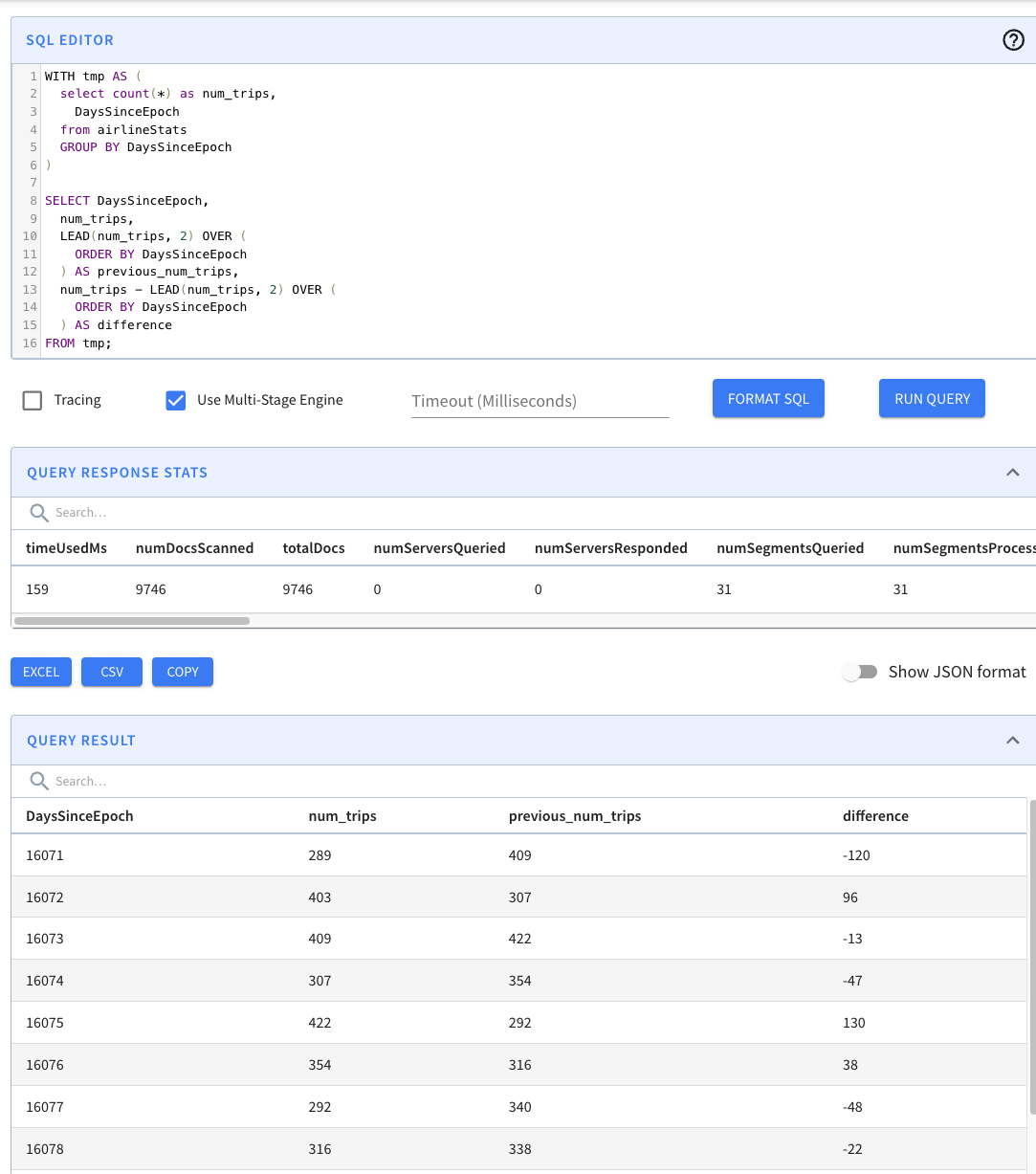LEAD
This section contains reference documentation for the LEAD function.
Signature
LEAD(any expression [, bigint offset [, any default]])Arguments
Example
SELECT
sales_date,
sales_amount,
LEAD(sales_amount, 1) OVER (ORDER BY sales_date) AS next_day_sales
FROM
daily_sales;sales_date
sales_amount
next_day_sales
transaction_id
payment_date
amount
next_payment_amount
month
year
expenses
next_month_expenses

Was this helpful?

